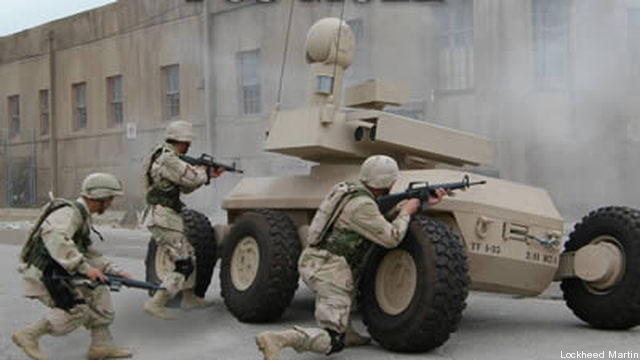DoD Kicks MULE To The Curb
Posted on
 Washington: The end has finally come for the Army’s Multifunction Utility Logistics Vehicle, better known inside the Pentagon as the Army MULE.
Washington: The end has finally come for the Army’s Multifunction Utility Logistics Vehicle, better known inside the Pentagon as the Army MULE.
The Defense Department’s procurement chief Ash Carter put the final nail in the program last week, issuing an Acquisition Decision Memorandum canceling the program on July 29, according to recent news reports.
A remnant of the Army’s defunct Future Combat Systems program the MULE was designed to haul heavy weapons and equipment for ground combat units, keeping those troops more mobile in the field.
But rising costs and schedule delays on the MULE, as well as most of the individual systems in FCS, prompted then Defense Secretary Robert Gates to terminate the entire FCS effort in 2009.
The Army did attempt to spin out some of the individual FCS systems as stand-alone programs — the MULE being one of those programs — to varying success.
While Carter’s decision was just a formality, since Army leaders opted to put the MULE down for good earlier this year, one former Army officer thinks the decision could not have come soon enough.
The Army has no one else to blame but themselves for the acquisition troubles that eventually ended the MULE, and FCS before it, defense expert and former Army colonel Doug Macgregor said. (Macgregor is a member of the Breaking Defense Board of Contributors)
Both programs were prime examples of the Army’s lack of accountability within its senior program acquisition ranks, Macgregor said.
“In contrast to the Navy where flag officers are regularly relieved for many reasons including ship building failures, not a single general officer inside the Army is held accountable for these disasters or those oversea,” MacGregor said.
And in the case of recent Army acquisition woes rooted in that lack of accountability FCS is just the tip of the iceburg.
Many of the top brass who allowed FCS to spiral out of control are now key players in the GCV on the industry side, Macgregor pointed out. “Under the circumstances, no one should be surprised at [these] long list of failures,” he said.
“Regardless the outcome of the MULE or elements of the now-cancelled FCS program, unmanned systems have proven to be force multipliers at far less overall expense that increasing the number of people on the battlefield,” he said.
“But as with any new and evolving technology, we will experience set-backs and redirection as we determine what works, and what works at an acceptable cost in a resource-constrained world,” Wood added.
Subscribe to our newsletter
Promotions, new products and sales. Directly to your inbox.
